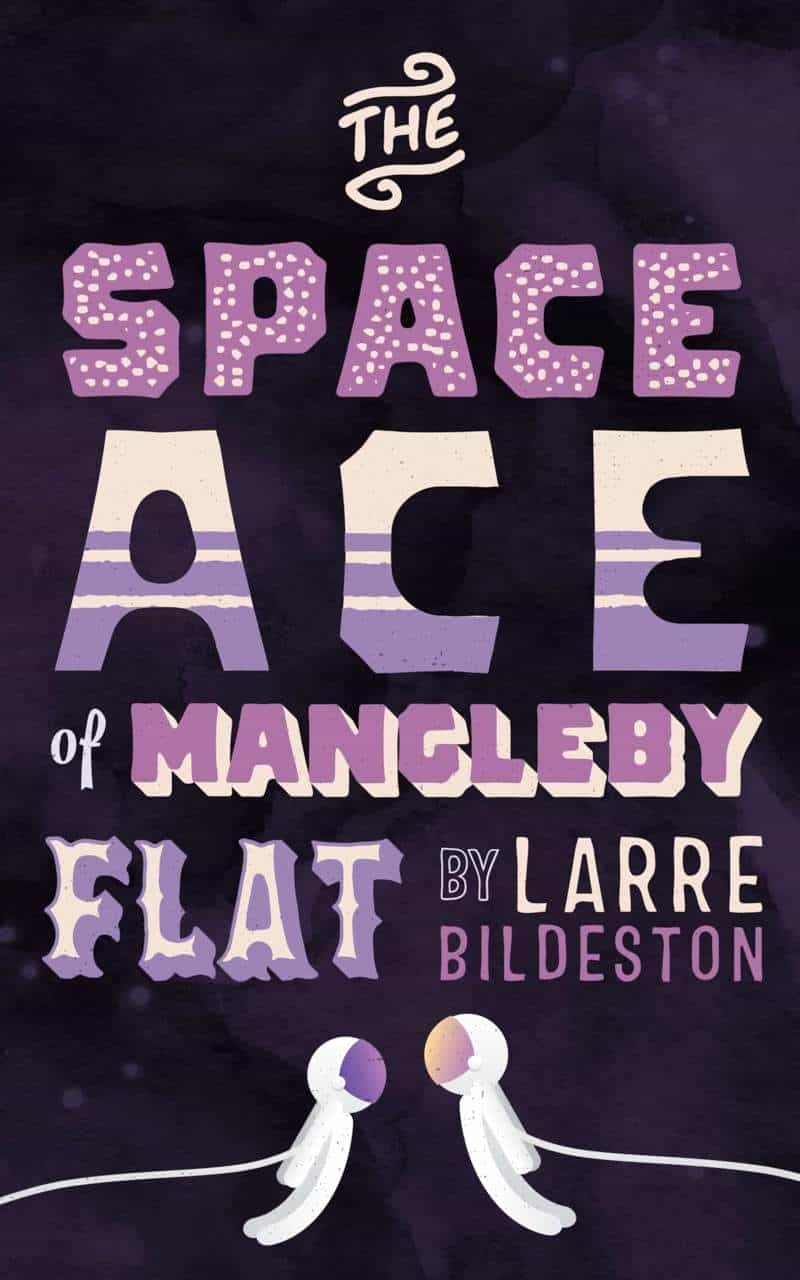Who doesn’t love a grand unifying theory? Today I present a unifying theory which describes infantilising discrimination towards minorities in all domains of human hierarchy:
Minorities always know more about the dominant culture than the dominant culture knows about minorities.
- Black people know more about white culture than white people know about Black culture.
- Gay people know more about straight culture than straight people know about gay culture.
- Transgender people know more about cis experience than cis people know about transgender experience.
- Autistic people know more about allistic culture than allistic (non-autistic) people know about Autistic people.
- Aspec (aromantic and asexual) people know more about allo culture than allo (non-asexual) people know about aspec culture.
- etc.
Women are not a minority, but women understand men better than men understand women. That’s because women have to, for safety:
It’s a lot easier to write a male character from your own culture … because you have the language and the detail, you have the reactions. Women spend a lot more time listening to men than men do listening to women, so we have a lot of material at our disposal. Men do not usually sit and have a two-hour conversation about the intricacies of the psyches of their wives and girlfriends, whereas women do this routinely.
Margaret Atwood
Everyone has their own limited understanding of the world based on their own histories, identities and genetics. Not one single person has an omniscient take on everyone’s point of view. Everyone’s stance is parallactic.
But because dominant groups are normative, and because normative groups are so vocal and obvious and assumed, minorities learn the normative culture as well as their own subculture.
Oftentimes this is a matter of survival. In all cases, it takes work.
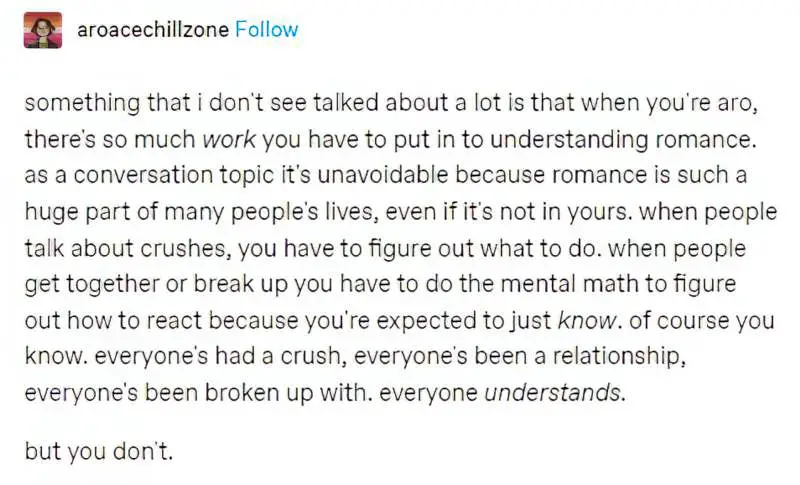
EXAMPLES
- Black people and people of colour are frequently able to codeswitch from the home dialect to the mainstream dialect when entering the world of school and work. But people from white cultures are only able to mimic certain aspects of, say, AAVE (African American Vernacular English) without knowing the entirety, the nuance, or important context.
- We all grow up in a heteronormative society, so every single one of us understands how that works. But only gay people are immersed in gay culture and gay experience.
- We all grow up under a strict gender binary of ‘man’ and ‘woman’, so every single one of us can explain that, for cis people, gender and sex are in alignment. But only trans and non-binary people understand what it’s like to know that your gender does not line up with your assigned sex.
- Autistic people grow up under the deficit model of neurodivergence and are required to adapt to allistic ways of thinking in order to get by. This happens on both a subconscious and a conscious level, as Autistic children as so frequently taught strategies to get by such as looking others in the eye, smiling politely, withholding the truth, sitting still and so on.
- We all grow up in a culture of amatonormativity with compulsory sexuality. This is entirely invisible to the vast majority of people (allosexuals) and only becomes visible once we fall outside the expected sexual and partnering norm.
THE TERRIBLE PARADOX
The terrible paradox of all this: People from minorities and other disadvantaged groups are considered less capable, less knowledgeable and less trustworthy than those who conform to the dominant way-of-being, even regarding their very own experience. Especially regarding their very own experience.
Miranda Fricker called this testimonial injustice.
EXAMPLES
- A person who has experienced sexual assault is considered biased in her decision to believe the testimony another person who has also experienced sexual assault.
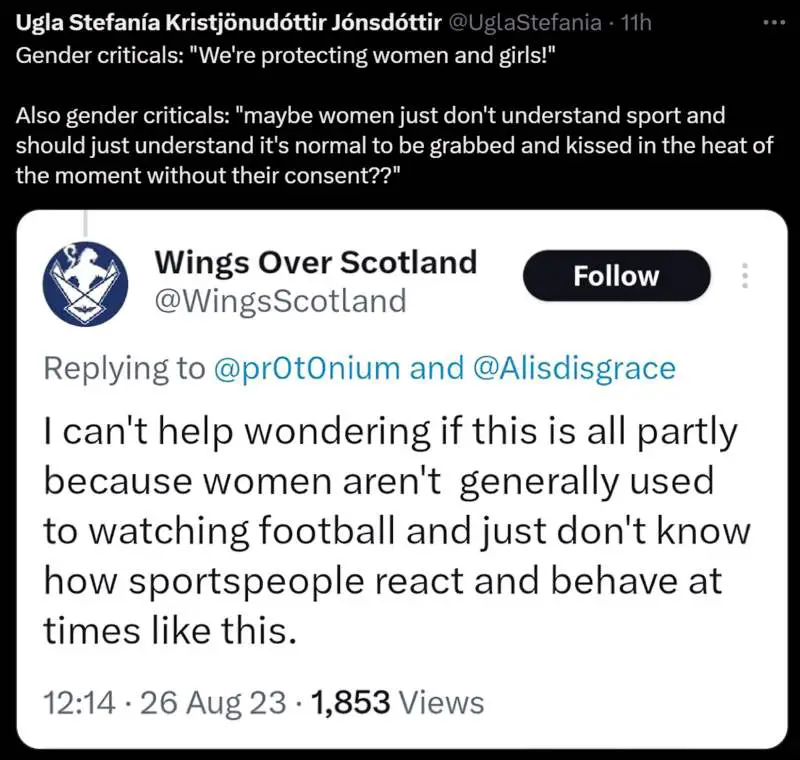
- Mothers, who know their children the best, are frequently dismissed by the medical establishment when trying to describe that their child needs assistance. Her closeness to the child is considered reason to disbelieve her.
- Transgender people are considered biased when arguing for gender affirming care and inclusion.
- Autistic people walk into pretty much any setting and an entire set of prejudices fall upon them: Autistic people don’t understand irony or how to smile or how to respect hierarchy or when to interject… The list goes on and on.





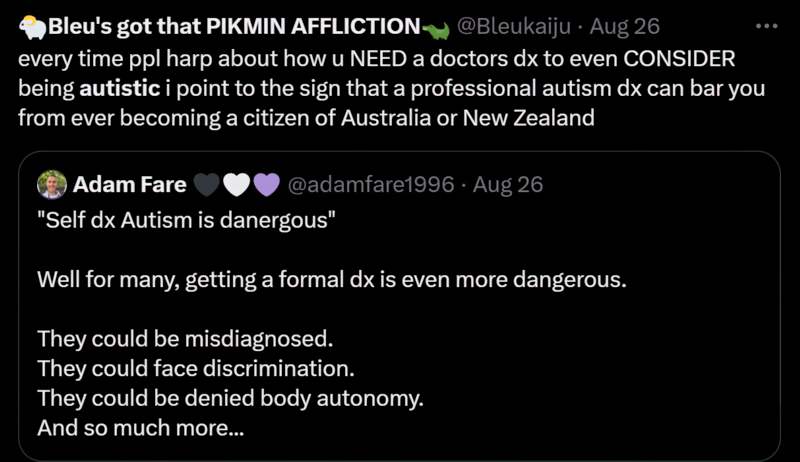




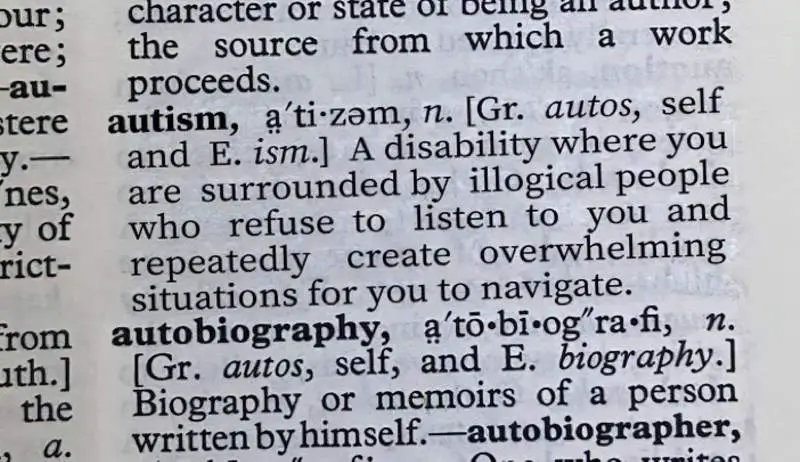
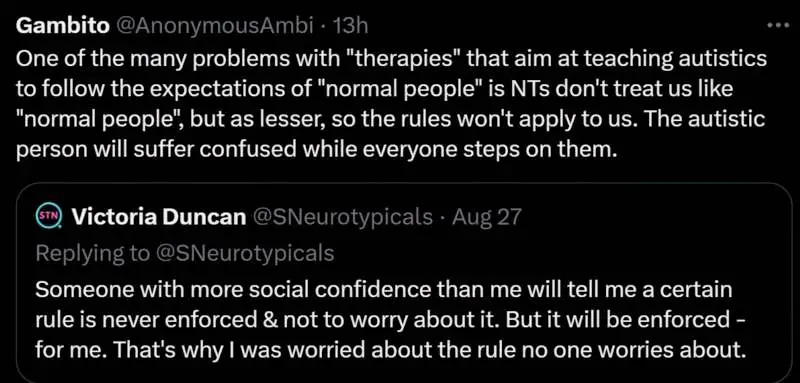
- A person with diagnosed anxiety walks into a doctor’s office with any complaint at all and worries that that her complex/life-threatening health issue will be put down to anxiety.
- Aspec people are consistently infantilised on the misunderstanding that they won’t understand sexual innuendo. There’s an assumption that aspec people have no first hand experience of love and/or sex. In fact, the aspec community is diverse, includes sex workers, parents and everyone in between, and is, overall, very queer literate. Even where there is no experience of partnering, parenting of partnered sexual activity, aspec people understand allosexual culture because allosexual culture is the water we’re swimming in.

All of the above is completely aside from the fact that certain identities grant certain superpowers:

NORMATIVITY DOES NOT EQUAL OBJECTIVITY
The notion that cisgender people can be objective about trans issues while trans people cannot informs a lot of media coverage about trans people. The problem is that it rests on the false assumption that *normativity equals objectivity*.
Just because someone occupies a default position on some cultural axis doesn’t mean they don’t have a personal stake in it or strong bias about it. In fact, the reverse is often true: normativity is a powerful force that often goes totally unrecognized by those under its sway.
Anyway, journalists need to talk to trans people about trans issues. We have a lot of interesting and useful things to say about them and have thought about them in ways that cis people have not. We read and think and observe our own situation, often with a great deal of nuance.
@LilahSturges, Dec 6, 2022
THE MEDICAL MODEL OF DISABILITY ASSUMES THE DOCTORS KNOW MORE
Corin, known as The Tweedy at Xitter says the following:
- There’s no widely shared, simple definition of disability.
- “Models of disability” are analytical tools.
- The so-called “Medical Model” (TMM) is the dominant model of disability, used by institutions, influencing public policy, funding and so on.
- Most people are guided by The Medical Model and look no further, without asking what this model does to disabled people.
- The Medical Model treats disability as a deficit.
- This deficit is located in the bodies and minds of people.
- According to The Medical Model, disabled people need medical professions to fix/manage/accommodate disabled people.
- The Medical Model treats disability as a problem with the individual rather than a problem with how society fails to accommodate disabled people.
Here’s where the confusion happens: the “medical” in TMM *does not* refer to medical care. Saying that TMM is problematic is *not* a critique of medical professionals or medical treatment and research. It also is not limited to the medical system.
Rather, TMM refers to a *relationship of power* and a *location of expertise*. What that means is that the medical system is vested with the power to determine what “counts” as disability, who is disabled, what their needs are, what supports they’re entitled to, etc…
In short, the medical system knows what’s best for disabled ppl. Rather than a medical system that works with disabled ppl for the purposes of achieving wellbeing, we are left with a medical system that sees the existence of disabled ppl as a problem to be solved while holding the power to define disabled ppl’s needs and experiences as well as to gatekeep disabled ppl’s access to supports.
@the_tweedy, Corin • PhD @ubcGEOG • studying cats, gender, and domesticities • literal mutant (cEDS, etc.) • AuDHD • crip/queer/trans • he/him
EVERYONE THINKS THEY’RE NORMAL
The meme below might suggest, at first glance, that only neurodivergent, queer and abused people think they are the normal ones. In reality, every group tends to assume that their own experience is normal. This is a well-known cognitive bias.
The difference is, if you’ve self-reflected to the point where you know you’re neurodivergent, queer or abused, this puts you in a different position altogether.
Now you are at an advantage over the neurotypical, allocishet, non-abused adults when it comes to theory of mind. That’s because you no longer assume that your experience is the default.
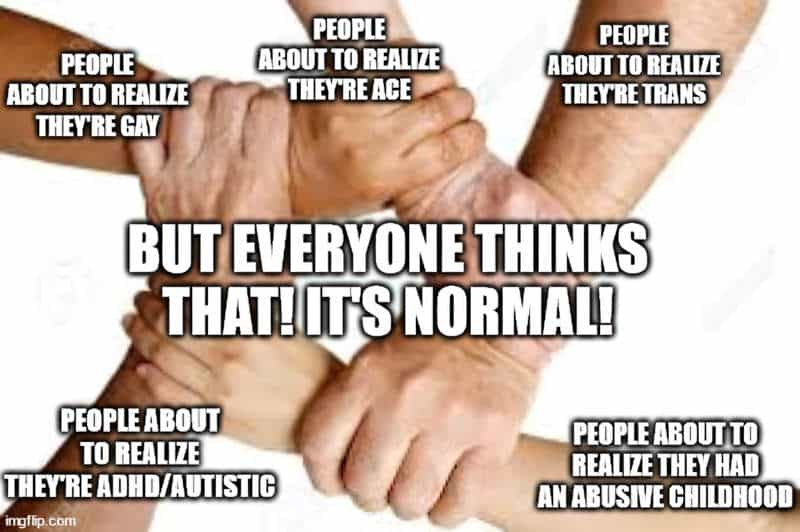
FURTHER READING
“Being-in-the-Room Privilege: Elite Capture and Epistemic Deference” by Olúfémi O. Táíwò at The Philosopher

